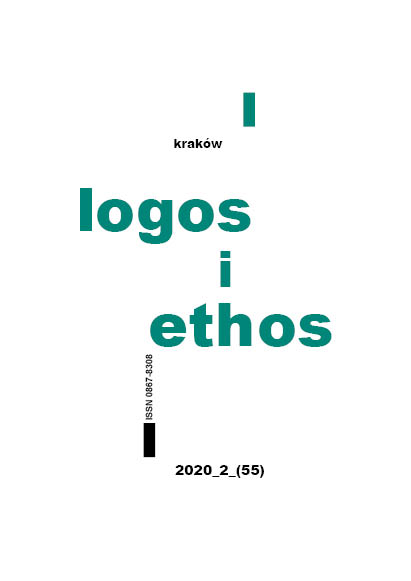Prepozytywistyczna (?) koncepcja filozofii narodowej Michała Wiszniewskiego. cz. 2: Charakter i język filozofii narodowej
DOI:
https://doi.org/10.15633/lie.3809Słowa kluczowe:
Michał Wiszniewski, filozofia narodowa, prepozytywizm, romantyzm, filozofia XIX wiekuAbstrakt
Termin „filozofia narodowa” obejmuje swym znaczeniem te specyficzne trendy filozoficzne, które występowały w wieku XIX, w okresie romantyzmu. Niemniej nie wszyscy myśliciele, którzy rozwijali koncepcję filozofii narodowej, należeli do tego wiodącego wówczas nurtu. Romantykiem nie był na pewno Wiszniewski, co też, między innymi, starano się pokazać w pierwszej części artykułu. Jednakże, podobnie jak każdy, kto postulował potrzebę stworzenia filozofii narodowej, tak i Wiszniewski stanął przed koniecznością określenia, czym według niego miałaby się charakteryzować filozofia narodowa, czyli stanął przed koniecznością określenia jej charakteru narodowego, stosunku do filozofii w ogóle, a także języka, w jakim miałaby się wyrażać. Tym zagadnieniom został poświęcony artykuł w swojej drugiej części. Stanowi on ponadto próbę oceny omawianej koncepcji Wiszniewskiego, a także odpowiedzi na pytanie „czy?” i na „ile?” można ją określić jako prepozytywistyczną.
Bibliografia
Bańka J., Poglądy filozoficzno-społeczne Michała Wiszniewskiego, Warszawa 1867.
Garfein-Garski S., Zagadnienie polskiej filozofii narodowej, w: Polska filozofia narodowa,
red. M. Straszewski, Kraków 1921, s. 5–29.
Glombik C., Tradycja i interpretacje. Antoni Molicki a reakcja katolicka wobec polskiej „filozofii narodowej”, Warszawa 1978.
Pol W., Filozofia i przysłowia ludu w Polsce, „Kwartalnik Naukowy Wydawany
w Połączeniu Prac Miłośników Umiejętności” 2 (1835), s. 19–42.
Struve H., Słówko o filozofii narodowej polskiej, „Ruch Filozoficzny” 1 (1911) nr 1, s. 1–3.
Skarga B., Narodziny pozytywizmu polskiego 1831–1864, Warszawa 2013.
Wąsik W., Historia filozofii polskiej. Scholastyka. Renesans. Oświecenie, t. 1, Warszawa 1958.
Wiszniewski M., Charaktery rozmów ludzkich, w: M. Wiszniewski, Bacona metoda tłumaczenia natury i inne pisma filozoficzne, Warszawa 1976, s. 385–596.
Wiszniewski M., Historia literatury polskiej, t. 1, Kraków 1840.
Wiszniewski M., Historia literatury polskiej, t. 3, Kraków 1841.
Wiszniewski M., O rozumie ludzkim, jego siłach, przymiotach i sposobie kształcenia,
w: M. Wiszniewski, Bacona metoda tłumaczenia natury i inne pisma filozoficzne, Warszawa 1976, s.177–384.
Wiszniewski M., O systematach filozofii moralnej, w: M. Wiszniewski, Bacona metoda tłumaczenia natury i inne pisma filozoficzne, Warszawa 1976, s. 595–640.
Wiszniewski M., Uwagi nad filozofowaniem, cz. 1, „Przyjaciel Ludu” 5 (1839) nr 32, s. 253–255.
Wiszniewski M., Uwagi nad filozofowaniem, cz. 2, „Przyjaciel Ludu” 5 (1839) nr 33, s. 258–260.
Wiszniewski M., Wykład wstępny, w: M. Wiszniewski, Bacona metoda tłumaczenia natury i inne pisma filozoficzne, Warszawa 1976, s. 671–683.
Pobrania
Opublikowane
Numer
Dział
Licencja
Autorzy publikujący w czasopiśmie udzielają jego wydawcy zgody o następującej treści:
- Autor zachowuje autorskie prawa majątkowe do utworu, a jednocześnie udziela wydawcy czasopisma zgody na jego pierwszą publikację w wersji drukowanej i wersji online na licencji Creative Commons Uznanie autorstwa 4.0 Międzynarodowe oraz zgody na wykonywanie opracowań, w tym przekładów.
- Autor ma możliwość udzielania zgody niewyłącznej na opublikowanie utworu w wersji, która ukazała się w czasopiśmie (np. zamieszczenia go w repozytorium instytucjonalnym lub opublikowania w książce), wraz z informacją o jego pierwszej publikacji w czasopiśmie.
- Autor może umieścić swój utwór online (np. w repozytorium instytucjonalnym lub na swojej stronie internetowej) jeszcze przed zgłoszeniem utworu do czasopisma.

